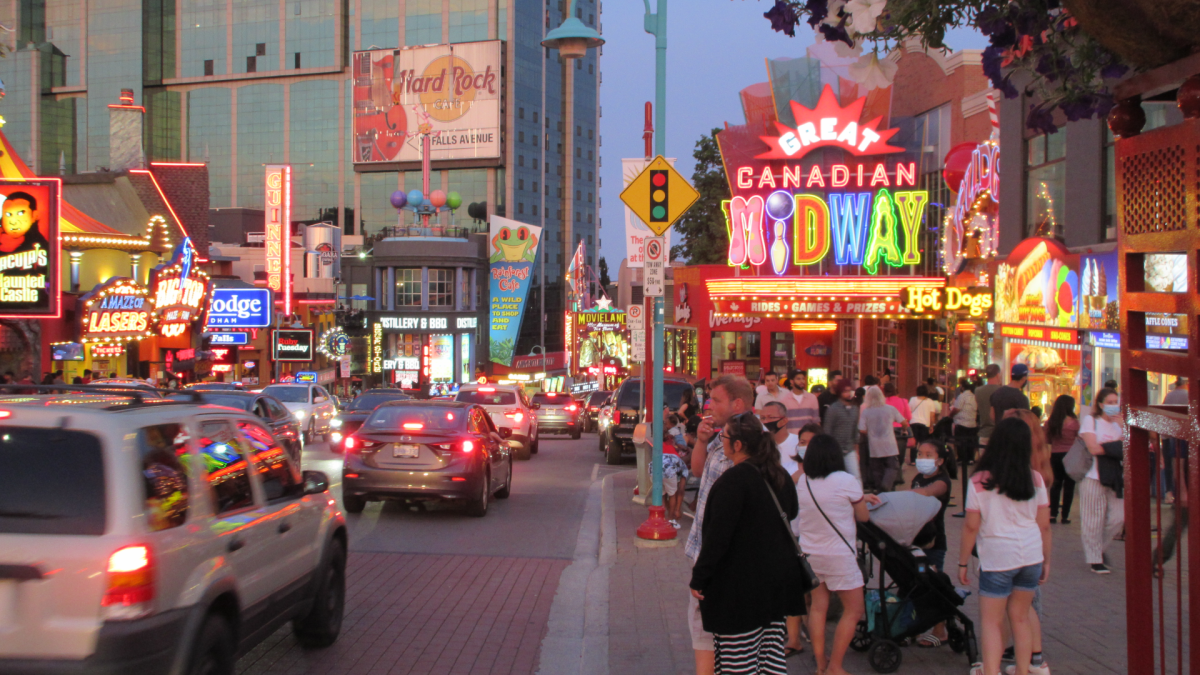The mayor of Niagara Falls, Ont. says Canada’s scrapping of COVID-19 testing requirements for fully-vaccinated people crossing the border from the U.S. to Canada “could be huge” for the city beaten down economically by the pandemic.

Jim Diodati says Canada’s number one leisure destination pre-pandemic had been seeing close to 14 million visitors per year which equated to about 50 per cent of revenues for the city and its businesses.
However, closures to Niagara’s casinos, hotels, restaurants and general hospitality sector affected close to 32,000 (16 per cent) of residents in the entire region through job losses requiring the provincial government to inject millions in support programs to revitalize tourism in early 2021.
A spring 2020 Niagara economic survey provided a sample of that impact estimating about $7.8 billion was potentially lost by businesses based on an aggregate of 1,300 respondents reporting $425 million in pandemic-related losses.
“We’ve got a chance this year of snapping back and having a really, really good season,” Diodati told 900 CHML’s Hamilton Today.
“Of course, everybody’s still tentative … waiting for that shoe to drop, but right now, people are really excited.”
The hesitancy Diodati refers to is the one caveat Health Minister Jean-Yves Duclos mentioned during the Trudeau government’s announcement on Thursday, which said the measures are “subject to review” and could potentially be changed.
“We will continue to adjust them as the epidemiological situation here in Canada and abroad evolves,” Duclos told reporters.

Get breaking National news
Diodati was one of 15 Canadian municipal leaders that called on the federal government to scrap COVID testing requirements characterizing the measure as out of line with current public health mandates.
“Community spread is responsible for 99 per cent of all infections, so the rules for travellers are now obsolete,” Diodati claims.
Currently, all travellers entering Canada — regardless of vaccination status — have to show proof of a negative COVID-19 antigen test, taken within 24 hours of their flight or arrival at Canada’s border.
On April 1, entrants into Canada won’t need to show that proof, however travellers arriving by plane are subject to random testing at airports.
Unvaccinated Canadians are allowed to come to Canada, but there are several steps needed to ensure they aren’t exposing others to COVID.
Diodati says the challenge now for Niagara Falls and many of Canada’s tourism destinations is re-establishing “broken patterns” he believes travellers adapted to during the pandemic, restricting their movement.
“Up until now, there’s been such a labyrinth of rules and regulations and confusion and frustration,” Diodati said.
“The travelling public are like water, they take the path of least resistance, and there was a lot of resistance at our borders.”
Public Health Canada is also advising travellers coming to Canada to devise a quarantine plan in case of a positive test allowing for accommodations at a final destination.
An infected individual is expected to stay with family or friends, a hotel, a campground or an RV rental. The government does not reimburse for costs of accommodations.
It’s also recommended travellers be wary of vaccination rules implemented by tourist services like VIA Rail and cruise ships which may not allow for non-vaccinated patrons.













Comments
Want to discuss? Please read our Commenting Policy first.